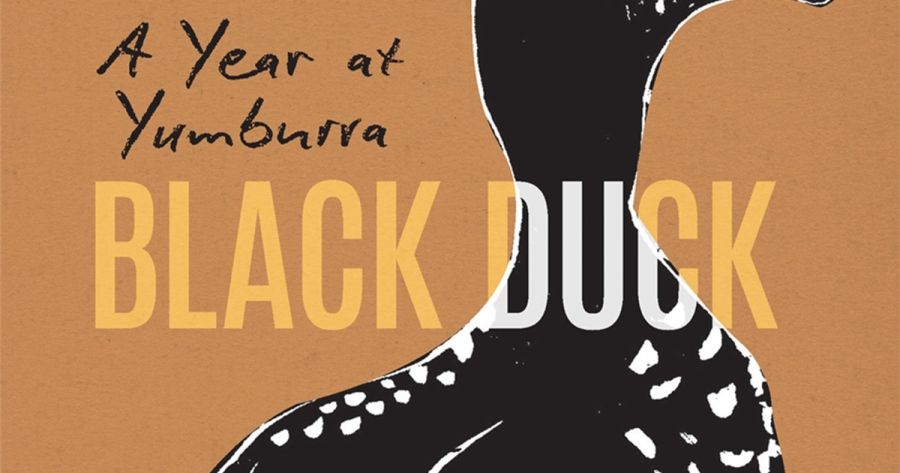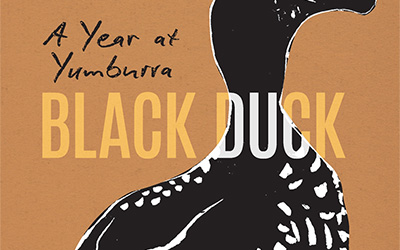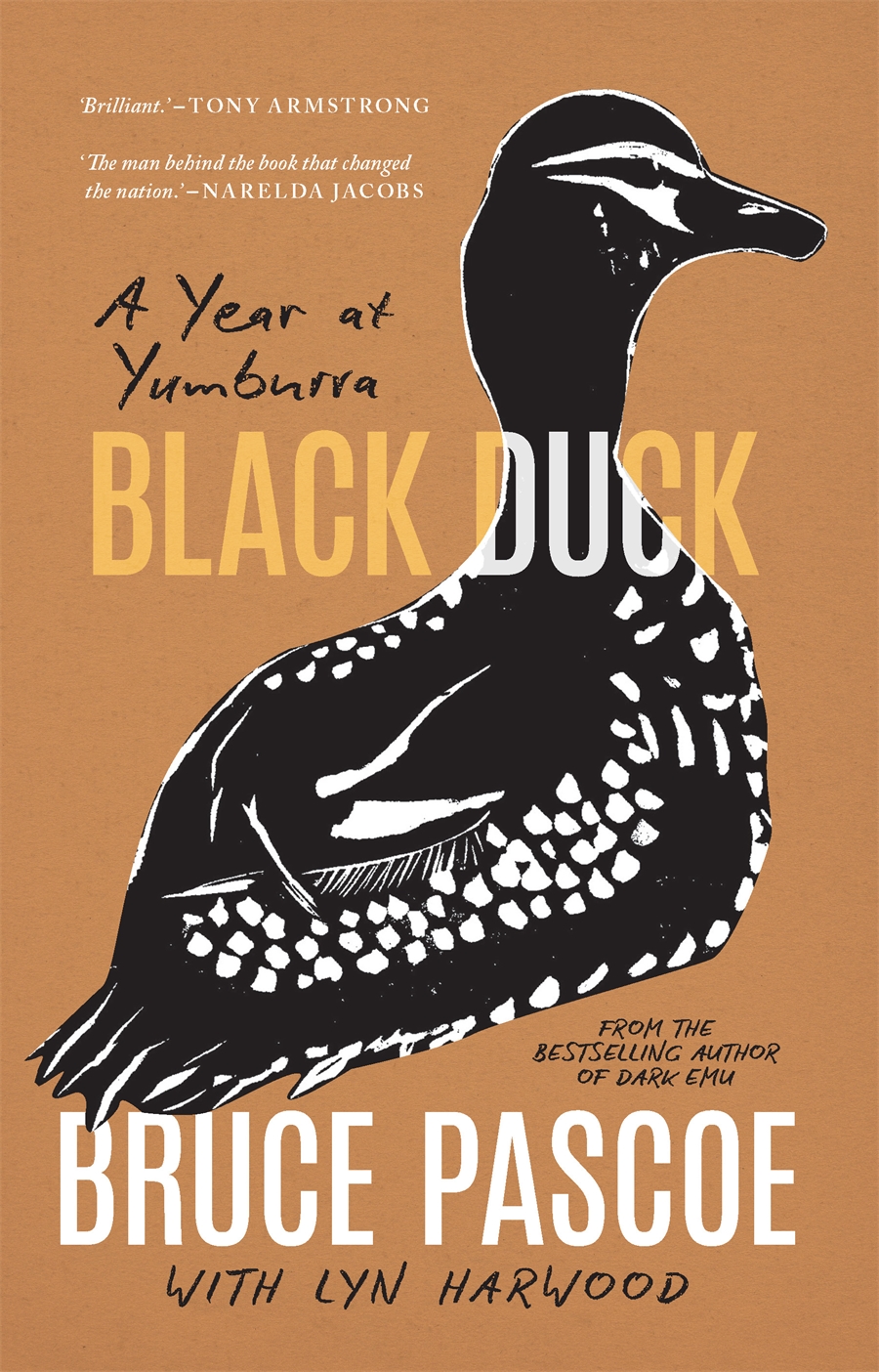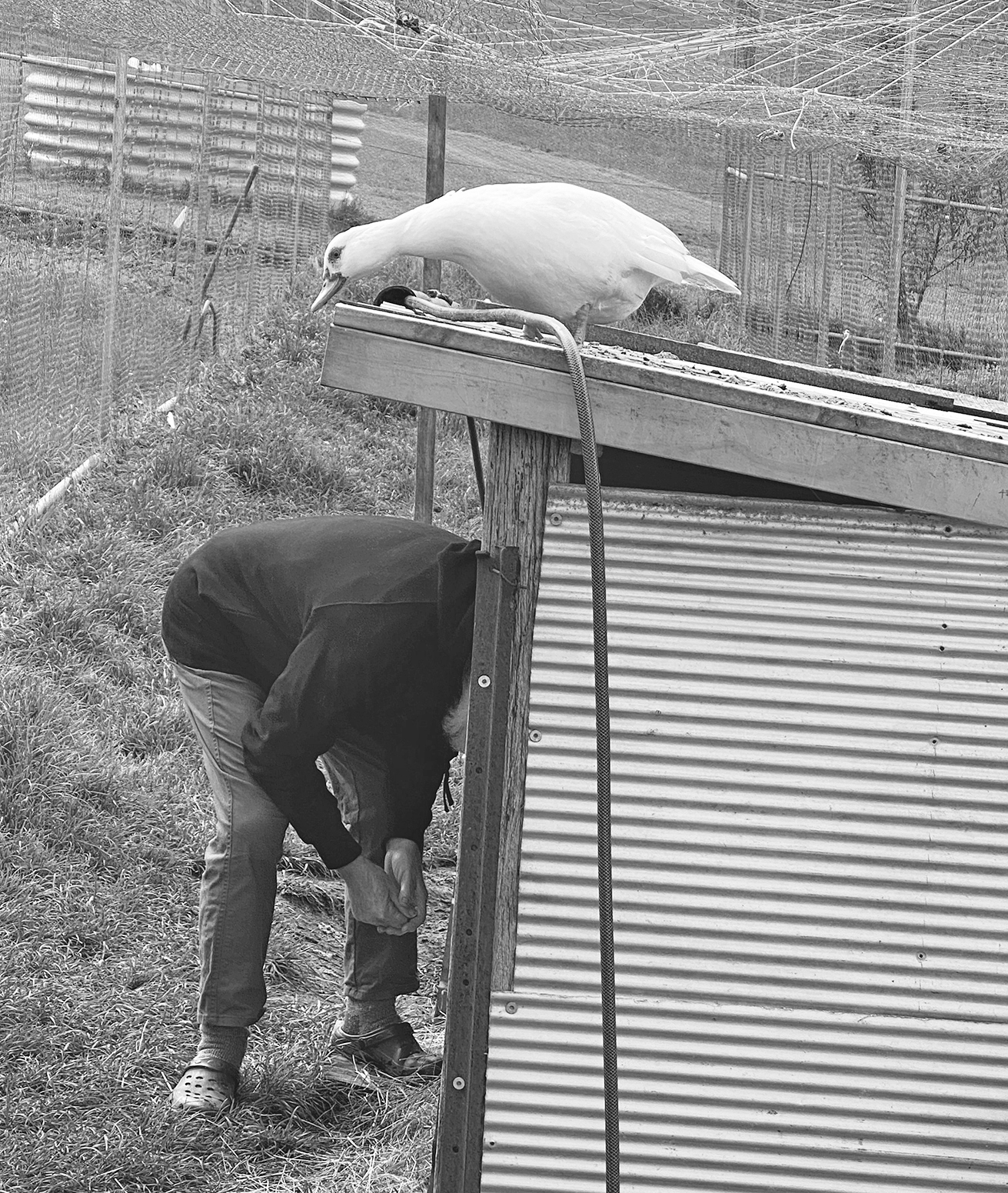
- Free Article: No
- Contents Category: Memoir
- Review Article: Yes
- Article Title: Pascoe's vision
- Article Subtitle: Musings on life and Country
- Online Only: No
- Custom Highlight Text:
I'm a whitefella who has never met Bruce Pascoe, but I’ve heard a lot about him. For the past few years, I have worked across Gippsland in the field of Aboriginal cultural heritage, and many of the people I meet mention his name. Experience has led me to try and dodge most of these conversations, knowing that our discussion will probably satisfy neither party, but I’m not having much luck. People want to talk about Pascoe, and often it is unpleasant. I have heard him described as a charlatan and worse, usually by those who have not met him, spoken with him, or read his work. Most of these critics are whitefellas, preoccupied with questioning or discrediting his Aboriginal heritage.
- Featured Image (400px * 250px):

- Alt Tag (Featured Image): Seumas Spark reviews ‘Black Duck: A year at Yumburra’ by Bruce Pascoe with Lyn Harwood
- Book 1 Title: Black Duck
- Book 1 Subtitle: A year at Yumburra
- Book 1 Biblio: Thames & Hudson, $34.99 pb, 303 pp
- Book 1 Cover Small (400 x 600):

- Book 1 Cover (800 x 1200):

While Pascoe’s Aboriginal heritage is a personal matter, there are legitimate questions to be asked about his approach to history and his use of evidence. Bill Gammage has suggested that Pascoe can push evidence too far; Tom Griffiths that Pascoe has not always acknowledged appropriately the writers whose scholarship and ideas have informed his work. While I haven’t read all of Pascoe’s books on Aboriginal history and culture, these criticisms ring true. But here’s the nub. The informed criticism offered by Gammage and Griffiths was just that, and not a rejection of all that is good and enlivening in Pascoe’s work. Gammage has co-authored a book with Pascoe, thus demonstrating that it is possible to be both critic and colleague. Other critics, however, see only the oversights and missteps in Pascoe’s writing, dwelling on those to the exclusion of all else. To do that is to miss the spirit and purpose of his work.
A few years ago, I fell for the writing of Polish journalist Ryszard Kapuściński. I read every one of his books that had been translated into English, then read about him, including the biography by Artur Domosławski. From Domosławski’s fine book and other bits and pieces, I learnt that Kapuściński had been in the habit of manipulating details, or inventing them, to suit the story he was telling. These revelations had no effect on my love for his writing. Kapuściński’s The Shadow of the Sun, a paean to the Africa he cherished, remains one of my favourite books. As the man himself said, when challenged by a critic: ‘I’m not writing so the details add up – the point is the essence of the matter.’
I am not suggesting that historians should abandon truth and detail; Kapuściński’s approach is not one to emulate. Nor am I implying anything about Pascoe. He makes mistakes, as we all do, but that is no sin. Rather, I cite Kapuściński to make the point that some scholars you read not for the nitty-gritty but to think anew and to dream, and so it is with Pascoe. Few writers are so bold in presenting a different vision for Australia and what it might be. This is what Black Duck offers, as did Dark Emu (2014) before it. Black Duck is an invitation to consider a just and equitable Australia, where the ways of the Old People are studied and adopted to inform a better future.
 Bruce Pascoe at Yumburra (Lyn Harwood)
Bruce Pascoe at Yumburra (Lyn Harwood)
Pascoe wrote Black Duck with his partner, Lyn Harwood. They live at Yumburra, a farm on Yuin Country near Gipsy Point in far east Gippsland. Yumburra, the black duck, is the most important Yuin totem. The farm is the base for Black Duck Foods, where Pascoe and his team grow tubers, grasses, and other foods that sustained Yuin life for tens of thousands of years before colonisation. Their goal is to revive traditional foods and methods of cultivation to benefit Aboriginal economies, and Country itself.
Black Duck is two things: a record of a year in the life of the farm, and a collection of musings on life and Country. Pascoe and Harwood write lyrically of the rhythms of life and its everyday joys, such as bird behaviour and song. Birds fill the book, characters through which the authors tell of the changing seasons and moods at their property. We learn of waterways, songlines, Yuin Country, and the life and customs of the Old People, whose mark is imprinted on the land. Mention is made of the benefits and difficulties generated by the success of Dark Emu, without Pascoe dwelling on the attacks he has endured. He sees no point in pursuing critics who are uninterested in reasoned argument. Moreover, his energy is waning and he has important work to do, including convincing Australians to manage the land according to Aboriginal principles.
At Yumburra, the work of the farm follows ancient, proven Aboriginal knowledge. As Pascoe and Harwood make clear, this transformation from modern to ancient is a necessary step, not a token gesture. If Australians are brave enough, and sensible enough, to adopt Aboriginal land management principles, we can help ensure food security, fight erosion and climate change, and prevent the firestorms that torch this country with increasing regularity. This is Pascoe’s vision. He hopes for a country where Aboriginal knowledge is treasured and respected not to honour a culture, or not only that, but because it’s necessary – honour through use.
Who could object to that? Well, the usual suspects I am sure. Black Duck is a rich and rewarding book, but its central points are not new. It restates many of the themes and challenges expressed in Dark Emu, and, inevitably, will prompt more attacks and vitriol. Pascoe knows that each time he publishes he will suffer, and yet he persists, determined to repeat the message until Australians hear it. There are many admirable aspects to Pascoe’s work, resilience among them. A less committed soul would have given up years ago.
In my cultural heritage work, it has been my good fortune to spend time with the GunaiKurnai elder Uncle Russell Mullett, whose judgement and wisdom are respected across Gippsland. Often, I have heard Uncle Russell encourage people to listen – to the birds, to the wise, to silence – for everywhere there are lessons, and by listening, we learn. Might we take this counsel and listen to Bruce Pascoe? I hope so, for there is much to gain.


Comments powered by CComment